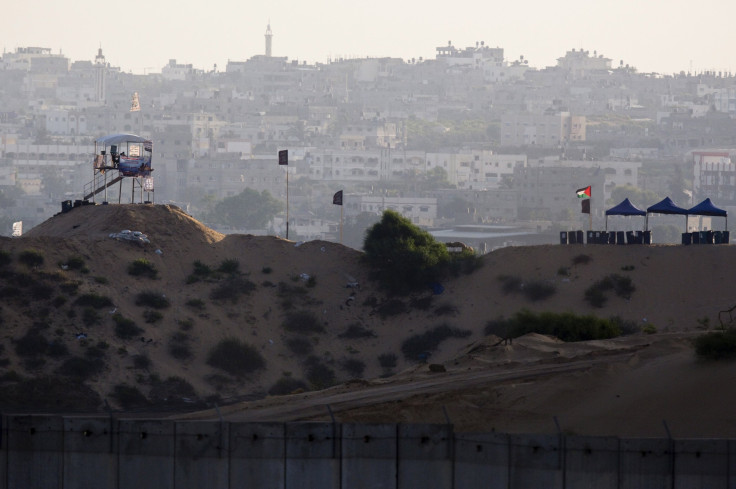Israeli Jets Strike Gaza Bases After Palestinian Militants Fire Rockets Into Southern Israel

Israeli fighter jets struck two security bases and an empty field in the Gaza Strip late Friday night after Palestinian militants fired rockets into the southern Israeli city of Ashkelon, and near the city of Sderot, earlier in the day.
One of the airstrikes targeted a national security base near the Jabalia refugee camp in the strip, and the other hit a base east of Gaza City in the Zeitoun neighborhood, while a third struck an empty field in the northern Beit Hanoun region, where one of the rockets is believed to have been fired from.
The Sderot rocket struck a parked bus without any casualties, while the rocket over Ashkelon was shot down by an Iron Dome defense battery.
The Israel Defense Forces (IDF) warned that it would not tolerate rockets fired into Israeli territory. "The terrorist group Hamas is the sovereign, and it carries the responsibility," the IDF said in a statement, according to Haaretz.
The Brigade of Omar Hadidi, believed to be affiliated with the Islamic State group, claimed responsibility for the Ashkelon attack on Twitter, Al Jazeera reported.
The attacks come at a time of heightened tensions between Palestinian protesters and Israeli security forces. Violent clashes between the two, which began earlier this week in the East Jerusalem Al-Aqsa mosque compound, spread beyond the walls of the old city Friday, with at least eight Palestinians being shot and several Israeli police officials injured by firebombs. Israel called up hundreds of reservist troops to help contain the clashes.
Hamas, which controls the Gaza Strip, called for a “day of rage” over the clashes at the mosque, after protests broke out Friday afternoon, where Palestinian stone throwers clashed with security troops.
Al-Aqsa mosque, which is holy to both Jews and Muslims, has long been a source of religious tension in the country. Jews consider it to be the Temple Mount, where the Biblical Israelite temples once stood, while Arabs regard the mosque as one of the holiest in Islam.
Muslim groups have expressed fears that the Israeli government will try to expand visiting rights for Jewish worshippers, while far-right Jewish groups have discussed the possibility of building a new temple on the site.
© Copyright IBTimes 2025. All rights reserved.





















